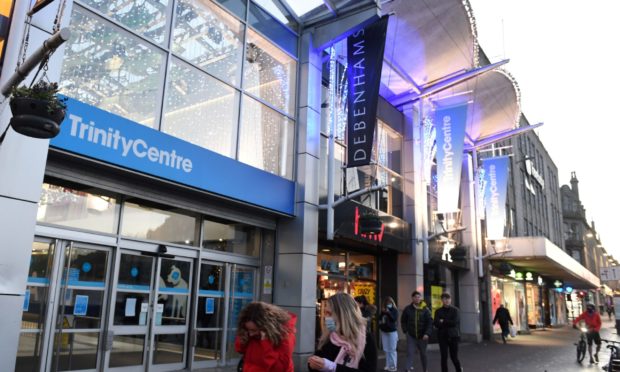Independent businesses could thrive after the Covid-19 crisis with the collapse of “anchor” retailers leaving more empty units in shopping centres, retail experts say.
Andrew Turnbull, a senior lecturer who specialises in retail at Robert Gordon University’s School of Creative and Cultural Business, says the pandemic has highlighted a big shift in customer attitude, which could work to the long-term advantage of smaller firms.
It comes after several well-known retail chains announced their shops will permanently shut, and as the Scottish Government yesterday sought to make life easier for hard-hit traders through a series of measures in the Budget.
Earlier this week, bosses confirmed all Debenhams stores – including in Aberdeen and Inverness – will close for good after the buy-out by online fashion retailer Boohoo.
This was followed by Paperchase’s announcement that 37 of its 127 stores will also remain closed despite securing a “rescue deal” with Aspen Phoenix Newco.
Yesterday, administrators revealed that the newly formed company is to take control of the card retailer – saving around 1,000 jobs.
However, this has been yet another blow to the local high street with the majority of retail units being left empty.
According to Mr Turnbill, the main victims of the pandemic have been the businesses that have been “out of touch” and don’t keep up with what appeals to customers.
He said: “The pandemic has been the perfect storm for shopping centres and anchor stores, which has highlighted issues that have been in the industry for some time with the online revolution going on for years now.
“Department stores are no longer fashionable, so they need to become places of entertainment and offer more than just the purchase of goods in order to give customers a reason to go out into town again.
“We see that the best players in the pandemic have been retailers which are hybrid – both offering online shopping and good in-store experience – so it’s not really about the size, but the value.
“So the winners would probably be the small exclusive independent businesses and major multi-site discount retailers, because they offer what the customer is looking for – individuality, value, good service and entertainment.
“However, in terms of filling the gaps of shopping centres, landlords would also have to rethink the models they use to determine rentals, because otherwise they won’t have anybody moving into their empty units – simply because of the case of affordability.”
Recent figures from the Scottish Retail Consortium show that one in seven shops in Scotland is currently empty.
In the last three months of last year, the number of vacant units on high streets, as well as in shopping centres and retail parks, has increased.
Lucy Stainton, head of retail at Local Data Company, which collected the figures, said: “This number only reflects the very immediate impact of the pandemic on the retail market.
“With each round of restrictions, these ‘frozen’ units are less likely to reopen and so we’re predicting the compound effect of each lockdown being visible in later figures.
“Added to this, with recent announcements from the likes of Debenhams and Arcadia, the size of the stores coming on to the market will present a real challenge given the likely lack of demand for larger high street units.
“With a limited number of new store openings, structural solutions will need to be found to prevent these vacant units lying empty for two, three, four years or more.
“Looking further out, the increase in availability of space will provide opportunities for new businesses, however we must prepare ourselves for the picture to get worse before it gets better.”
